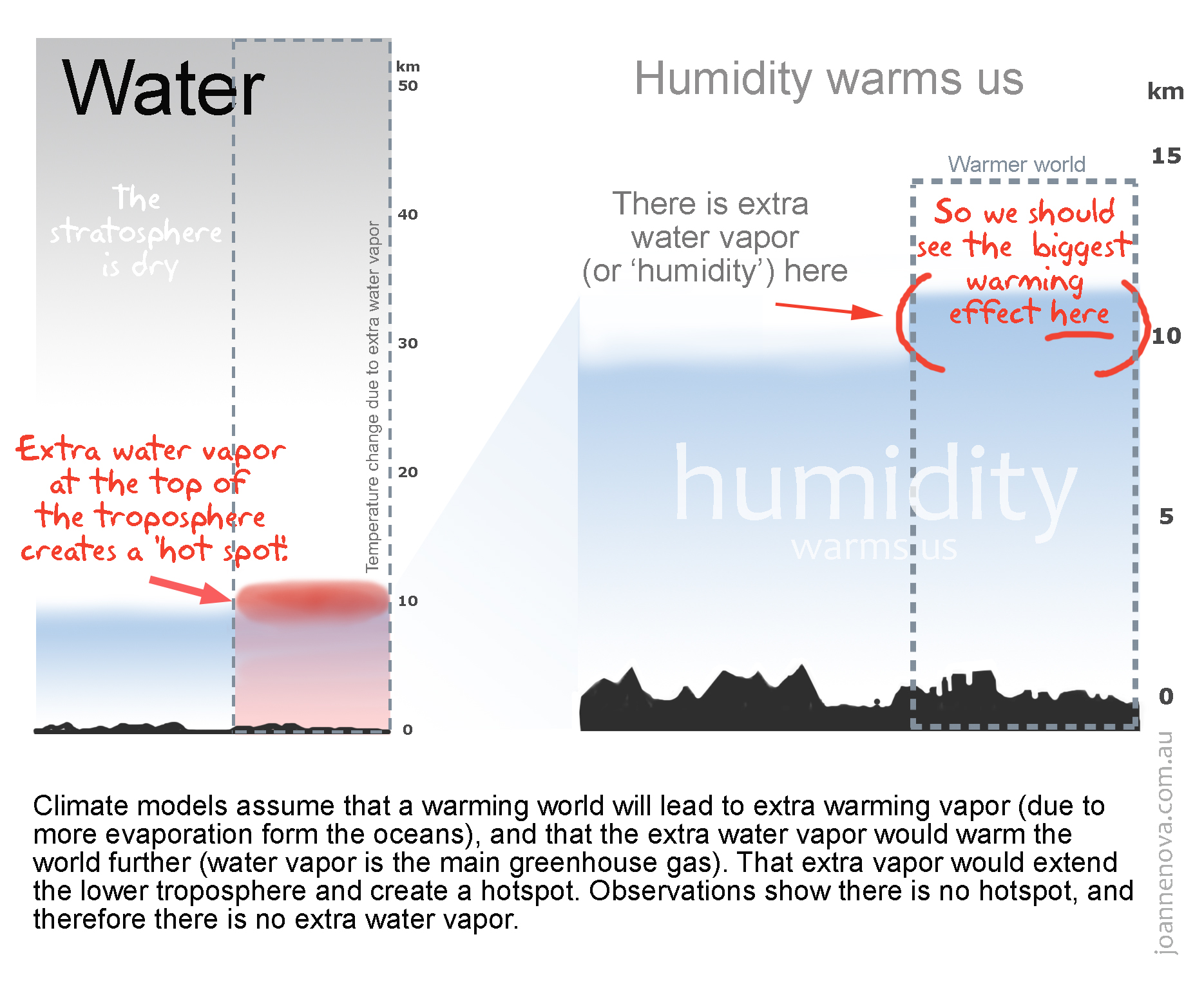
Carbon dioxide only causes 1.1°C of warming if it doubles. That’s according to the IPCC. Did you know?
The real game is water.
Researchers made guesses about humidity and clouds in the early 1980s and they built these guesses into their models. We now know they were wrong, not about carbon, but about water in the form of humidity and clouds. Here’s how the models can be right about carbon and wrong about the climate.
Here’s how the models can be right about carbon and wrong about the climate.
CO2 is a greenhouse gas, and it warms the planet. The modellers guessed that as the world warmed, more water would evaporate, and the rising humidity would lock in more heat. Makes sense. Humid nights are warmer than clear nights.
This is called “feedback” — carbon warms us, which lifts humidity, which warms us even more, at least in theory. But water is complex and fickle. Humidity can stay ‘humid’, or turn into low clouds, high clouds, or fall out as rain, hail or snow. And they all have a different effect.

Every prediction over 1.1 degrees relies on “feedback” of some sort. But what if that extra humidity turned into low clouds? What if it just rained out? What if fewer high clouds formed? Any of these would cool the planet.
Without the effects of feedbacks to amplify carbon’s minor warming, there is no disaster, and that’s exactly what the observations tell us. Lindzen found that as the planet warms it gives off more radiation. Spencer found that as the planet warms, we get fewer high clouds. Paltridge found that humidity levels have fallen. The missing hot spot shows the models are wrong. There goes almost all of the warming. The models exaggerate by a factor of six. The 3.3°C scare is really only about half a degree of extra warmth.
Who needs to transform economies to prevent half a degree of warming, most of which has already happened?
Who indeed?
Sources: Feedbacks: (projected) IPCC Assessment Report 4, AR4 Chapter 8. (Measured) Lindzen et al 2009. Clouds: Spencer et al 2007. Humidity, Paltridge et al, 2009.
TURN THE PAGES (Links will become active as pages are published). You are on the page in the Red Square.
| 1 | 2 | 3 | 4 | 5 | 6 | 7 | 8 + 9 | 10 | 11 | 12 | 13 | 14 | 15 | 16 | 17 | 18 | 19 | 20 |
This is page 6 of The Skeptics Handbook II. 20 page PDF